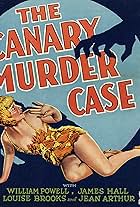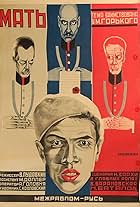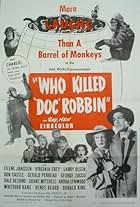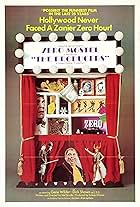
FelixtheCat
Joined May 2000
Badges9
To learn how to earn badges, go to the badges help page.
Ratings4.8K
FelixtheCat's rating
Reviews44
FelixtheCat's rating
The 1961 assassination of Zaire's prime minister Patrice Lumumba is the subject of this modest documentary. Raoul Peck directs this unique look at a tragic time in African history, where the one man who seemed poised to finally speak up for the black population of the Congo was brutally killed before his goal of equality could be completely achieved.
Peck, who intertwines bits of his own childhood into the mix to establish the period, uses little music to help establish the somberness of the subject. The result is a worthwhile documentary, especially to those interested in African history. Peck, who also narrates, directed the 2001 narrative film on the same subject entitled "Lumumba."
Peck, who intertwines bits of his own childhood into the mix to establish the period, uses little music to help establish the somberness of the subject. The result is a worthwhile documentary, especially to those interested in African history. Peck, who also narrates, directed the 2001 narrative film on the same subject entitled "Lumumba."
Leslie Banks stars as the title character, a British officer who manages to keep the peace between the African tribes loyal to His Majesty and those loyal to the African king. His right-hand man, one of the tribal leaders, played by Paul Robeson, does all he can to help Banks maintain the peace, but when Banks takes a trip away from the region, all heck breaks loose. Robeson tries his best to stem the tide of revolution against the British in Sanders' absence.
Zoltan Korda directed this surprisingly lesser-quality film, but actually wanted to make a more positive film in regards to its portrayal of Africa, but sadly he was dissuaded. Also, it is sad to see Robeson, such a political force for equality in real life, play a stereotypically subservient role to Banks. The film was based on Edgar Wallace's novel at the urging of the film's producer and director's brother, Alexander.
Zoltan Korda directed this surprisingly lesser-quality film, but actually wanted to make a more positive film in regards to its portrayal of Africa, but sadly he was dissuaded. Also, it is sad to see Robeson, such a political force for equality in real life, play a stereotypically subservient role to Banks. The film was based on Edgar Wallace's novel at the urging of the film's producer and director's brother, Alexander.
Marlene Dietrich stars as a European jewel thief who comically pilfers an extremely rare and expensive pearl necklace from a renowned jewelry store in France. Making her escape through Europe, she keeps bumping into a persistent, not-so-bright, vacationing American motor engineer played delightfully by Gary Cooper. After blowing he and his advances off several times, she realized that he unknowingly has obtained her stolen prize, and now she must find him in Spain and play up to him romantically. The film is very breezy and light most of the way, and Cooper and Dietrich do a fine job together. Meanwhile, Ernest Cossart as the jeweler and Alan Mowbray as a psychiatrist who is an unwitting accomplice to Dietrich have a great comedic scene with each other early on in Mowbray's office. 7 out of 10.
Insights
FelixtheCat's rating
Recently taken polls
4 total polls taken




























